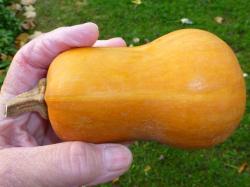Plant Breeders Work With Chefs To Create Better-Tasting New Varieties Of Fruits And Vegetables
November 18, 2015 | 1 min to read

Michael Mazourek and Dan Barber can trace the roots of their unusual partnership to a winter squash.
A few years ago, Mazourek, a vegetable breeder and professor of plant science at Cornell University, went to the Blue Hill restaurant in New York to sample the dishes that Barber, the chef, had made from the some of Mazourek’s newly bred organic vegetables. He was expecting a good meal, he recalls—after all, he could vouch for the quality of the raw ingredients—but he was blown away by the flavor that Barber and his colleagues had coaxed from the vegetables, particularly a tiny, tan variety of butternut squash called “Honeynut.”
Mazourek, who had never thought much about how his foods would be cooked once they left the farm, asked Barber what he had done to prepare the Honeynut. After the chef explained his technique, he asked a question of his own: The Honeynut didn’t store as well as other types of winter squash, Barber said, which meant the restaurant couldn’t keep them on the menu very long. Was it possible to develop a squash with all of the flavor, but a longer shelf life? There in the kitchen, Mazourek launched into an explanation of his classical breeding techniques, a conversation that quickly became a back-and-forth about what chefs needed and what plant scientists could provide.
To read the rest of the story, please go to: The Atlantic
